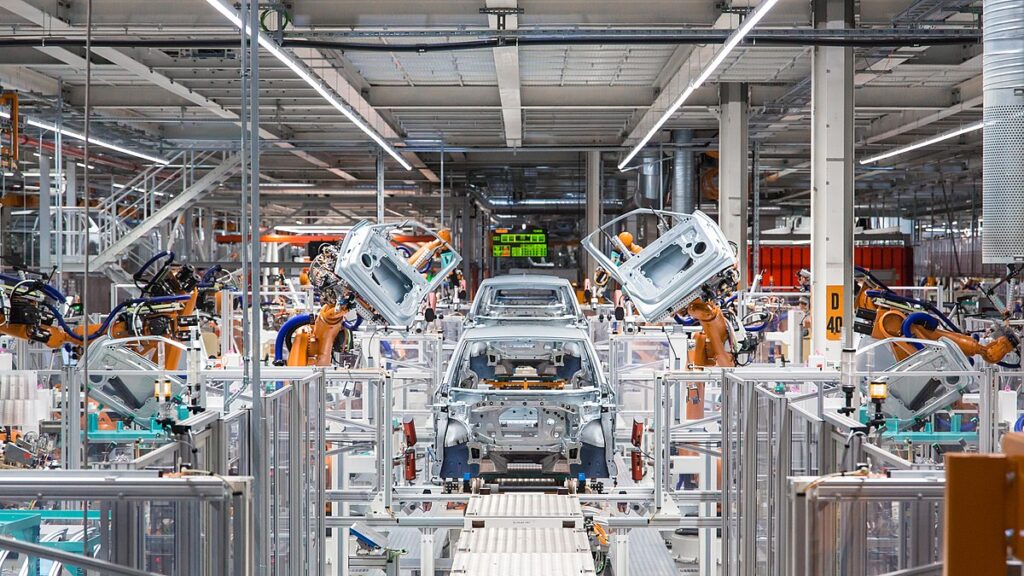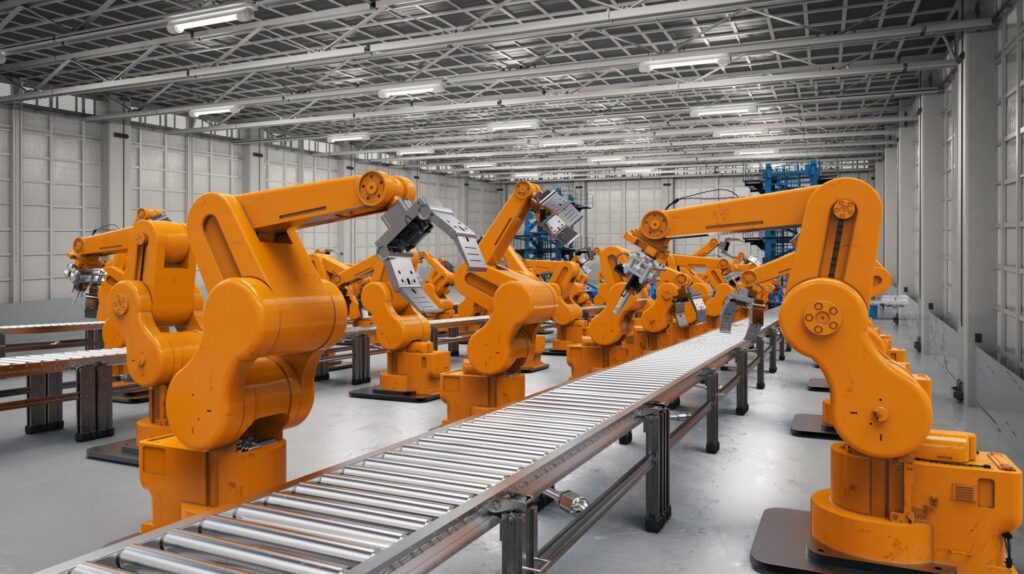Artificial intelligence (AI) is revolutionizing the way businesses operate, making them more efficient, innovative, and customer-focused. From automating routine tasks to optimizing operations and enhancing customer experience, Artificial intelligence (AI )and machine learning(ML) have had a significant impact on businesses and transformed the business landscape. In this blog, we’ll explore the role of AI in Business and how AI is revolutionizing the way businesses operate, making them more efficient, innovative, and customer-focused, enhancing customer experience in detail, and looking at specific examples of how AI is changing the way businesses operate.
Here are some examples of how AI can help in business.
Automating routine tasks
One of the most significant benefits of AI for businesses is the ability to automate routine tasks, such as data entry, report generation, and customer service. By automating these tasks, businesses can reduce the workload of employees and increase operational efficiency.

For example, AI can be used to automate data entry tasks, such as digitizing paper-based forms and inputting data into databases. This can save employees a significant amount of time, allowing them to focus on more strategic tasks.
Optimization of operations
AI can also be used to optimize operations by analyzing large volumes of data to identify areas for improvement. By analyzing data from various sources, such as customer behavior, financial performance, and market trends, businesses can gain insights that can help them make better decisions and drive growth.
For example, AI can be used to optimize supply chain operations by analyzing historical data to predict demand, reduce inventory, and optimize delivery routes. By optimizing supply chain operations, businesses can reduce costs, improve efficiency, and increase customer satisfaction.
AI can analyze large volumes of data quickly and accurately, providing insights that can help businesses make better decisions. For example, AI can analyze customer behavior data to identify trends and patterns that can inform product development and marketing strategies.
Enhancing customer experience
AI-powered chatbots and virtual assistants are changing the game in terms of customer experience. These AI-driven tools are able to provide 24/7 customer support, which means customers can get the assistance they need anytime, anywhere. This type of service is especially important for businesses that operate across multiple time zones or for those with customers who prefer to interact outside of traditional business hours
Furthermore, AI can help businesses personalize their marketing messages and offers based on customer behavior. By analyzing customer data such as purchase history, browsing behavior, and engagement with marketing campaigns, AI can create personalized offers and messaging that resonate with customers on a deeper level. This not only enhances the customer experience but can also lead to increased customer loyalty and ultimately, revenue.
Also read: Chatbots & Beyond: Innovation in customer service technology
Prediction and Prevention of Risks
AI can also be used to predict and prevent potential risks, such as fraud or cybersecurity threats. By analyzing data in real-time, businesses can identify potential issues before they escalate and take proactive measures to prevent them from occurring.
For example, AI can be used to detect and prevent fraud by analyzing data from various sources, such as transaction history and customer behavior. By detecting fraudulent activity early, businesses can minimize the impact of fraud and protect their financial interests.
In cybersecurity, AI can be used to detect and prevent potential cyber threats by analyzing network traffic and identifying potential vulnerabilities. By proactively identifying and addressing vulnerabilities, businesses can protect their data and maintain the trust of their customers.
Real-time monitoring
AI can greatly assist in real-time monitoring by leveraging the power of advanced analytics and machine learning algorithms. Real-time monitoring is critical in industries such as healthcare, finance, and manufacturing where any delays or inaccuracies in monitoring can have serious consequences. AI can automate real-time monitoring processes, such as using drones to monitor infrastructure and alert maintenance teams of issues.
In healthcare, AI-powered real-time monitoring can improve patient outcomes by enabling doctors and nurses to receive instant notifications of any significant changes in patient vital signs or other health indicators. By analyzing real-time data from medical devices such as heart rate monitors and blood pressure cuffs, AI algorithms can detect anomalies and alert healthcare professionals to take immediate action. This can help prevent serious medical complications and save lives.
In finance, AI can be used for real-time fraud detection and prevention. By analyzing large volumes of financial data in real-time, AI algorithms can identify patterns that indicate fraudulent activity and alert financial institutions to take immediate action. This can help prevent financial losses and improve overall risk management.
Making better data-driven decisions
AI can help make data-driven decisions by analyzing large amounts of data and identifying patterns, trends, and insights that would be difficult for humans to detect. By leveraging advanced algorithms and machine learning techniques, AI can provide valuable insights that can help businesses and industries to make informed decisions.

AI can make data-driven decisions by analyzing customer data. By analyzing customer behavior and preferences, AI algorithms can identify patterns and insights that can help businesses to personalize marketing messages, improve customer engagement, and enhance the overall customer experience.
For example, in the manufacturing industry, AI algorithms can analyze data from sensors and other sources to identify patterns and trends in machine performance, allowing businesses to optimize production processes, reduce downtime, and increase efficiency.
Product and Service Innovation
AI is transforming product and service innovation by providing new ways to gather and analyze customer data, identify trends, and make informed decisions based on insights. AI can be used throughout the innovation process, from ideation to market launch, to create products and services that better meet customer needs and drive business growth.

One way AI can drive product and service innovation is through predictive analytics. By analyzing customer data such as purchase history, browsing behavior, and social media activity, AI can predict future trends and identify opportunities for new products and services. This can enable companies to create products and services that better meet customer needs and preferences, and ultimately drive revenue growth.
In addition, AI can be used to improve product and service delivery. For example, AI-powered chatbots and virtual assistants can provide personalized customer support, helping customers to better understand and use products and services. This will result in increased customer satisfaction and loyalty.
Increasing efficiency and productivity
AI can increase efficiency and productivity in various industries by automating routine tasks, providing real-time insights, predicting maintenance issues, personalizing recommendations, optimizing production processes, reducing downtime, and increasing efficiency. processes, and enhancing supply chain management.
AI can free up time and resources for more strategic and creative work, reduce costs, improve accuracy, and ultimately help organizations achieve greater success.
Improving accuracy
AI has the potential to significantly improve accuracy in a wide range of industries by leveraging the power of advanced algorithms and machine learning techniques. AI can perform tasks with a high degree of accuracy, reducing the risk of errors associated with manual labor. AI-powered systems can analyze large amounts of data and identify patterns, allowing them to make more informed decisions and improve overall performance.
One key area where AI can improve accuracy is image and speech recognition. With sophisticated algorithms, AI-powered systems can accurately identify and transcribe speech and recognize faces, which can be useful in a range of applications, such as security, healthcare, and customer service.
AI can also improve accuracy in medical diagnosis by analyzing large amounts of medical data and identifying patterns and trends that can be used to accurately diagnose medical conditions. By doing so, AI can help to reduce misdiagnosis and improve patient outcomes. It will do the same in other sectors too.
Fraud detection
As we know AI can detect enormous amounts of data and find patterns and anomalies that may suggest fraudulent behavior, Machine learning algorithms can be trained on large data sets of known fraud cases to learn the common characteristics and patterns of fraudulent transactions.
AI can also continuously monitor transactions in real-time, flagging any transactions that appear suspicious based on predefined rules or machine learning models. This allows fraud to be detected and prevented more quickly and accurately than through manual monitoring methods.
AI can also be used to analyze social media and other sources of public data to detect potential fraud schemes or trends. By leveraging AI in fraud detection, organizations can reduce the risk of financial losses, reputational damage, and legal repercussions associated with fraud.
This can be particularly important in industries such as healthcare and finance, where errors can have serious consequences
You can read more: How AI is revolutionizing fraud detection & prevention.
In short, it is clear AI is revolutionizing and will revolutionize the way businesses operate by enabling more efficient processes, improving decision-making, and enhancing the customer experience. As AI technology continues to advance, businesses that embrace its capabilities are likely to gain a competitive advantage in the marketplace.
FAQs
